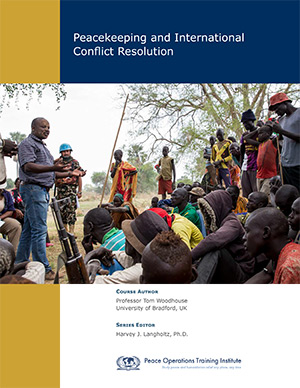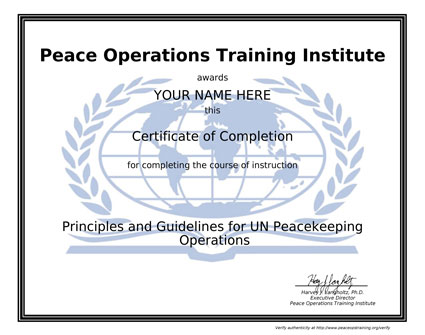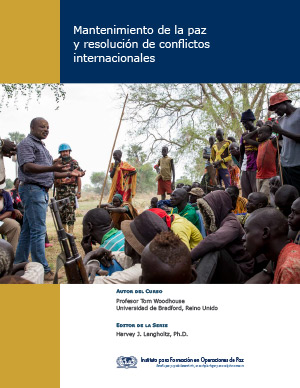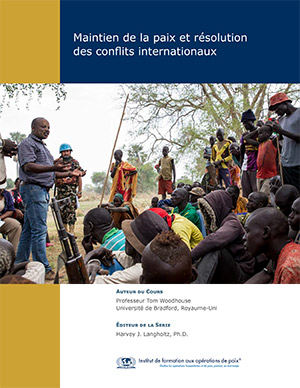The overall aim of this course is to provide the student with a basic understanding of the field of conflict resolution and its application, both theoretically and practically, to peacekeeping intervention in contemporary international conflicts. The course explores the emergence and development of the academic discipline of conflict resolution and its relation to the evolution of peacekeeping. The nature of conflict and the dynamics of contemporary conflict are defined, along with the key concepts and techniques for resolving conflict. The course explores the significant areas that will improve responses to today’s complex emergencies, including conflict analysis and mapping, early warning and conflict prevention, contingency and complementarity approaches, interagency coordination, post-conflict peacebuilding and reconciliation, cultural understanding, and gender awareness.
The 2020 edition of this course covers the continued development of peacekeeping doctrine, theory, and practice in relation to the role of conflict analysis and resolution on the ground. It also offers new insights into the impact of information and communication technology on peacekeeping and conflict resolution — for example, the increasing use of unmanned aerial vehicles on mission and e-peace simulations to help train peacekeepers.
About the Author: Professor Tom Woodhouse held the Adam Curle Chair in Conflict Resolution at the University of Bradford from 1999-2012. He founded the Centre for Conflict Resolution at the University of Bradford in 1990. He has been attached to the Department of Peace Studies since its formation in 1974, when he was appointed as a Research Assistant to the founding Professor, Adam Curle. He retired from his post in October 2012 and currently is an Emeritus Professor at the University of Bradford.
Number of pages: 260 [English]
Publisher: Peace Operations Training Institute [12-10-2020]



